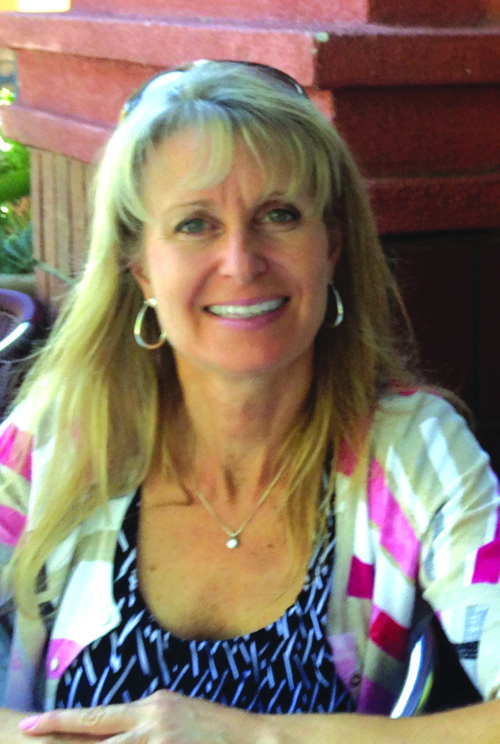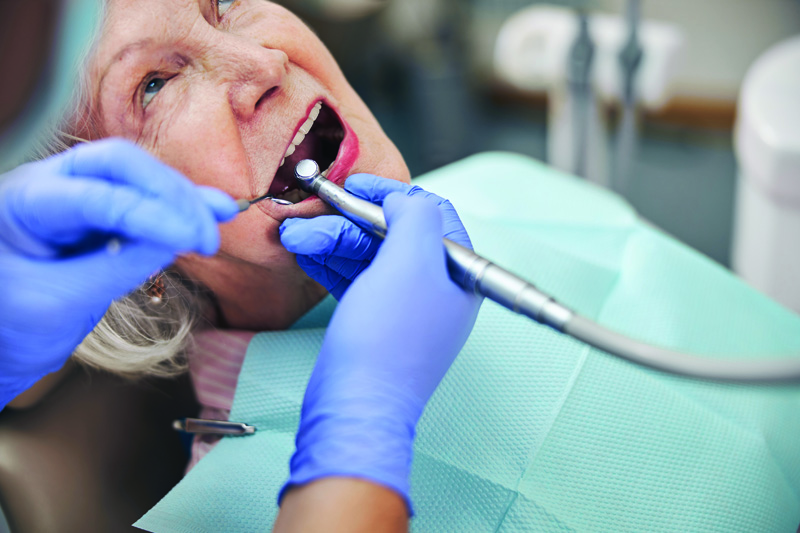Dental advocacy: a life-changing benefit for people with serious mental illness.



Stephanie Short takes a very long view when it comes to the dental health of her patients. The registered dental hygienist has worked in the same dental office in Morgan Hill, California for 34 years, and has been employed by Psynergy Programs as its patient advocate for 16 of those years. Her passion is helping guide often-terrified mentally challenged clients to take advantage of the dental benefits they are entitled to under MediCal, often leading to better overall health and an improved outlook on life.
Poor dental health is a slippery slope for many people in the mental health system. Serious dental issues are common in a population that may not prioritize brushing and flossing, and may not have had routine cleanings, fillings or root canals for years. By the time Short meets with a patient for the first time, problems may be severe and the client may be in real pain, often resisting the suggestion that they see a dentist for covered exams, x-rays and sadly, extractions.
Making the landscape even more complicated is the fact that MediCal provides only the benefits that state funding allows. When clients move from a locked facility to an unlocked facility like Psynergy, their designation and benefits change.
Working through MediCal
“Since the budget crisis in 2009, fillings, crowns and root canals for those living in unlocked facilities are not covered by MediCal,” says Short. “Lots of clients lost teeth. I started thinking that if there is any money for clients anywhere, dental health is where we should start. So I started reaching out to conservators to see if there could be money for an extra cleaning. I reached out to dentists for a special rate. I learned more about how MediCal ran, and the next time I went to a dental convention I took a class to understand the limitations, and recruit providers willing to serve the community.”
Short stays current on what MediCal provides and why, so that she can explain to clients what their options are. While a tooth may be too damaged to invest in a root canal or a crown, they may be eligible for scaling and root planing – deep cleaning – that allows them to have a cleaning every three months for two years. This can help turn around months without brushing or flossing, which creates damage in bone and tissue. X-rays submitted to MediCal can often generate approval for a root-planing that can assist in tissue recovery.
“Medications influence salivary flow and the components in saliva, creating a drier mouth, which can compromise the oral cavity,” Short says. “You get a rise in the acid level of the mouth which helps the bacteria that cause tooth decay to flourish. We educate clients about using alcohol-free mouthwash that is better for the tissue but still delivers fluoride, and Biotene, which can help reduce dry mouth at night.”
The biggest problem Stephanie Short faces with her clients is getting them to participate in their own oral health. It’s a long, painstaking process that can literally take months or years.
Earning clients’ trust
“I meet with them initially for a dental screening in their room, which is a comfortable space for them to be. Using the flashlight on my phone and gloves, I examine the teeth and see which are missing, broken or decayed. I look for tartar and oral lesions that could be a cancer concern. I discuss with them what I’m seeing. Some are anxious and won’t let me look, so I try to coax them out of their shell.”
Ultimately, Short can’t force clients to participate. She introduces herself, lets clients know what days she is around, and tells them she is always available if they would like to be evaluated.
“What usually happens is people who were initially too anxious to be seen will come up after two or three months and talk to me. They’ve been observing me working with others, and are finally comfortable enough to say, ‘I just want you to look at this one spot.’”
Overall she tries to respect their space, respect their decisions, and try to read their mental space that day. She tries to create realistic expectations, helping them understand the amount of damage they may have, and the benefits they may not have. “They may not get their ideal mouth. We can get them out of pain, but not replace a tooth. I try to create realistic expectations,” she says.
While all conserved clients have DentiCal, which is the dental portion of MediCal, some clients may have private insurance through parents, or a trust may pay part of the cost. Short explores all of the options for each patient.
No treatment or cleanings are done on site. The other part of Short’s responsibility is to schedule appointments with a provider and make sure that the client keeps them.
“Transportation availability and cancellations have been huge issues with keeping our clients on schedule with their dental appointments,” she says. “The dentist usually dedicates the majority of a morning or afternoon to seeing multiple clients, so if we cancel it devastates their day and they cannot recoup the fiscal damage it creates. I highly value the dentist who is willing to see an entire population of a mental health residence, so I don’t schedule clients for needed work until I know they are in agreement to go.”
Patient success stories
“We have a client in his thirties who has been with us forever who had a huge anxiety about dental care,” says Short. “I would check on him regularly, taking him flossers and working with him on brushing. He would agree to appointments and then he would cancel. This went on for a couple of years. Finally he had something bothering him – a broken tooth – that made being seen more urgent. He rationalized that the pain was not that bad. It’s common that mental health medications interfere with dental pain pathways, so pain is not always an indicator of the seriousness of the problem. I spoke with him every day, and he agreed to go if the person who was transporting him would go into the room with him during the appointment. He actually went in, got an exam and x-rays, but refused cleaning or extraction. I met with him week after week to check in and let him know how proud I was of him for going, lauding his accomplishment. I continued to encourage him to go in for a cleaning, letting him know that numbing gel was available, along with support from us. Knowing that, he actually went to get his teeth cleaned. Now, he’s asking me when his next cleaning is.”
Another client knew that she had dental issues, but was terrified of seeing the dentist. She asked Short if she could bring a teddy bear to her dental appointment.
“So far, she has successfully gone in for exams, fillings, extractions and a root canal because she can bring her teddy bear, and because she can talk to me and express her fears,” says Short. “It’s amazing how it’s possible to bring down the fear multiple because someone is able to explain what to expect. Our position as advocate is not just to screen and help them be seen, but to work through a client’s fears and expectations to make their dental experience something they can handle.”
Short is currently overseeing 60 clients at Nueva Vista in Morgan Hill.
“Many of my current clients have been at Psynergy for a few years now – with Covid, clients are often staying more long-term,” she relates. “So in all of my years here, the last five have been a bright spot. We’ve expanded resources, asking conservators to think outside the box. Working in partnership with them, we can often get a little extra money for additional services. Having a relationship with families may help us get an electric toothbrush and money for an extra cleaning. Now, clients are actually asking for dental care, along with a new toothbrush and more baking soda toothpaste and more flossers. We’re directing appointments and getting people into a rhythm of annual dental visits. It’s taken us many years to get here, but the rewards are now being felt.”
